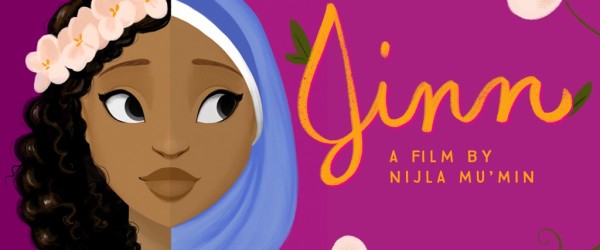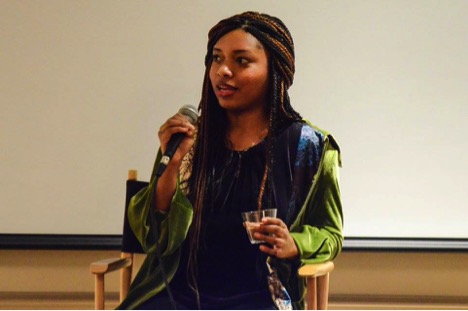With an accolade of awards and recognition for her screenwriting, including her work in progress film, Jinn which has already received several high ratings on the industry script database, Shereen Malherbe speaks to filmmaker Nijla Mu’min about her new highly anticipated first feature film.
SM: Tells us about your film Jinn in a snapshot.
NM: Jinn is a coming of age dramedy about a carefree black girl whose world is turned upside when her mother converts to Islam, sending her on a quest for self-definition. It’s a fun, fresh exploration of identity, Islam, millennial culture, and first love.
SM: Where do you draw your character’s experiences from?
NM: Some of my character’s experiences are loosely drawn from my experiences growing up, specifically around her introduction to Islam and the complex and multifaceted world she is brought into. Summer’s experiences also mirror mine in relation to identity- I never felt, and still don’t feel, that I fit neatly into one way of being. I am fascinated by the duality and intersections of identity, and how categories don’t fit people.
SM: I agree with that perception that categories don’t fit people. I read a tweet of yours saying ‘if you want to know why i’m making @JinnFilm, here it is. this is how i resist.’ in response to American politics, so was your character Summer written to be representative of America’s current relationship with Islam?
NM: No, I don’t feel Summer is representative of America’s current relationship with Islam, though I do think that her journey and conversion in the story does connect to some people’s own process of learning about Islam in this country. There’s a lot of misinformation and stigma at the moment, so as some audiences go on the journey with Summer, hopefully they come away with the complexity and nuance that she does. But I try not to crafts stories and characters on a macro level. It’s all about specificity in emotion and in growth. In that, people are able to relate and connect.
SM: I think that it is a great point, to focus on specificity in emotion when telling stories.
How do you find those emotions and interactions to build ideas for your films?
NM: It’s about taking every opportunity to observe and document the life and people around me, which influence my art and filmmaking. Stories come to me on the subway, looking into the eyes of strangers at a bodega, or in observing a wordless exchange on the street. I also keep a journal and write things down to remember them. I also love photography and poetry so I work with these images and build a world around them.
SM: How important is it to be out and about involved in your community?
NM: I think it’s really important to be in the world, and engage with others in the world. Whether that’s through walking down the street without headphones on and no cell phone, or going to a screening or a dance performance and letting someone’s movement impact your soul, or smiling at someone because you felt their spirit. Human interaction is necessary to break down some of the barriers we face every day. The more we can take in one another, the more we can be human to one another.
SM: With your interest in photography and poetry, why did you choose filmmaking?
NM: I class myself as an interdisciplinary artist and I wanted to reach higher. I love telling stories and reading epic novels and I was interested in this world being built.
SM: How does filmmaking compare as a process?
NM: The funding for independent filmmakers can be an arduous process but you stay committed to your project and that commitment can become unbreakable. I have seen that in films that have taken ten years to get to production.
SM: It sounds like the journey is all part of the process?
NM: It is. I started Jinn last summer and already I am visualizing the perfect location before filming starts, hopefully by late summer. What is really great is that those who I have supported have been there with me on this journey and I’m so grateful that they are.
SM: There is so much about inclusion and diversity at the moment. How has the current focus on ‘#OscarsSoWhite’ helped or hindered your ambitions?
NM: “White Hollywood” hasn’t had a direct impact on my ambitions as a storyteller or filmmaker. I’ve been writing and developing my voice as a writer since I was a young girl, way before I knew what “White Hollywood” was. My ambitions and scripts are abundant. However, some of the systemic barriers to resources and funding as an independent filmmaker of color and a woman have presented challenges to me, and to getting my films made.
SM: What advice do you have for other aspiring filmmakers?
NM: Tell your story and don’t wait for permission from others. Get with like-minded folks and form a team of artistic support.
SM: Thank you for taking the time to talk to us, Nijla. I wish you the best of luck with completing Jinn and look forward to watching the feature soon.
If you would like to read more about Jinn and to support the project, visit her Kickstart website before 1st April 2016. You can also follow Nijla on Twitter.



1 Comment
[…] To read the full interview visit Muslimah Media Watch […]